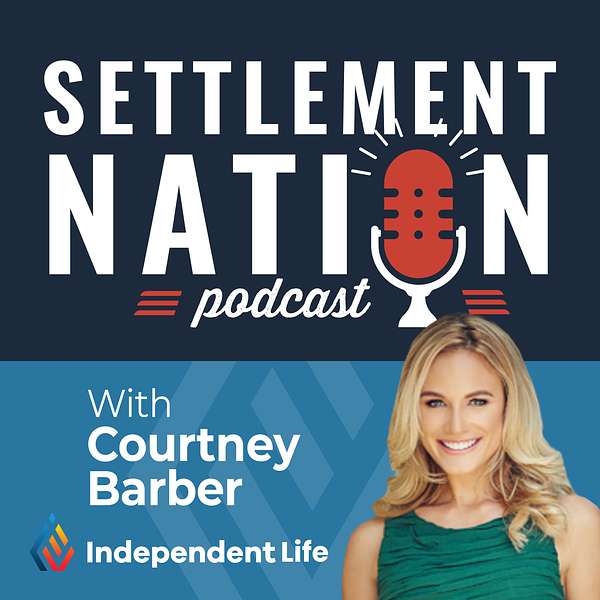
Settlement Nation
Conversations with leading trial lawyers and settlement professionals on topics ranging from advice and strategies from top trial lawyers, settlement planning for plaintiffs, tax planning for attorneys, and future innovations in the legal and insurance industries. Brought to you by Independent Life, the only plaintiff focused structured settlement provider, and hosted by Courtney Barber. The views, thoughts, and opinions expressed on the Settlement Nation podcast are those of the guests, and not necessarily those of Independent Life or its affiliates.
Settlement Nation
The Human Factor with the Airstream Attorney Brian Ward
This episode of Settlement Nation Courtney chats with Brian Ward, an attorney with Carpenter, Zuckerman & Rowley (CZ&R) out of Los Angeles. Brian shares his story, on how he was sworn in early straight of out law school, to begin his first jury trial, how his own personal injury has shaped the way he relates to the challenges his clients face, and advice for other attorneys on how they can improve their skills in the courtroom. Brian also shares what life is like conducting business on the road in his Airstream.
Thank you for tuning in to Settlement Nation, the premier podcast for high performers and trial lawyers.
Each episode of Settlement Nation dives deep into the world of trial law, offering valuable advice and strategies from leading trial attorneys, industry experts and thought leaders. As the creative mind behind the acclaimed podcast, host Courtney Barber ignites conversations that spark change and inspire action.
Tune in and discover the secrets to success, learn from the best, and join a community of driven professionals committed to justice.
Subscribe now and step into the winner’s circle with Settlement Nation —where high performance meets high impact.
Instagram
Sponsorships, Guests and Everything Podcast, Click Here.
